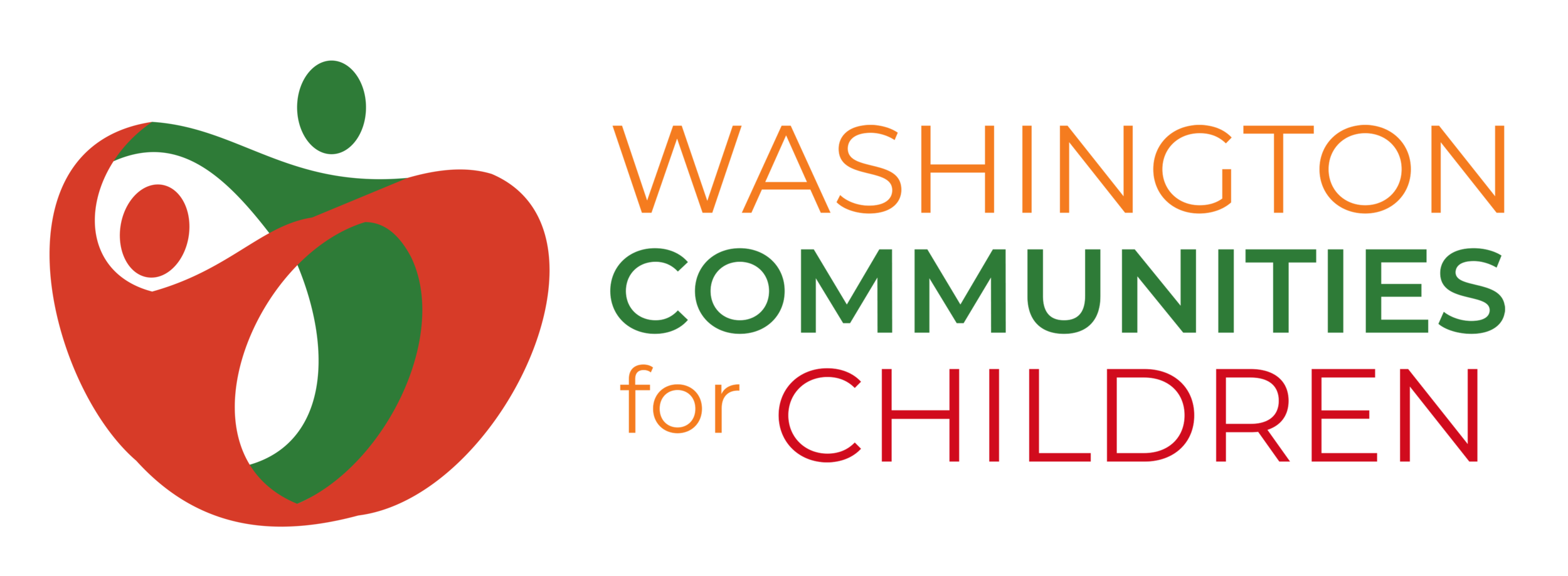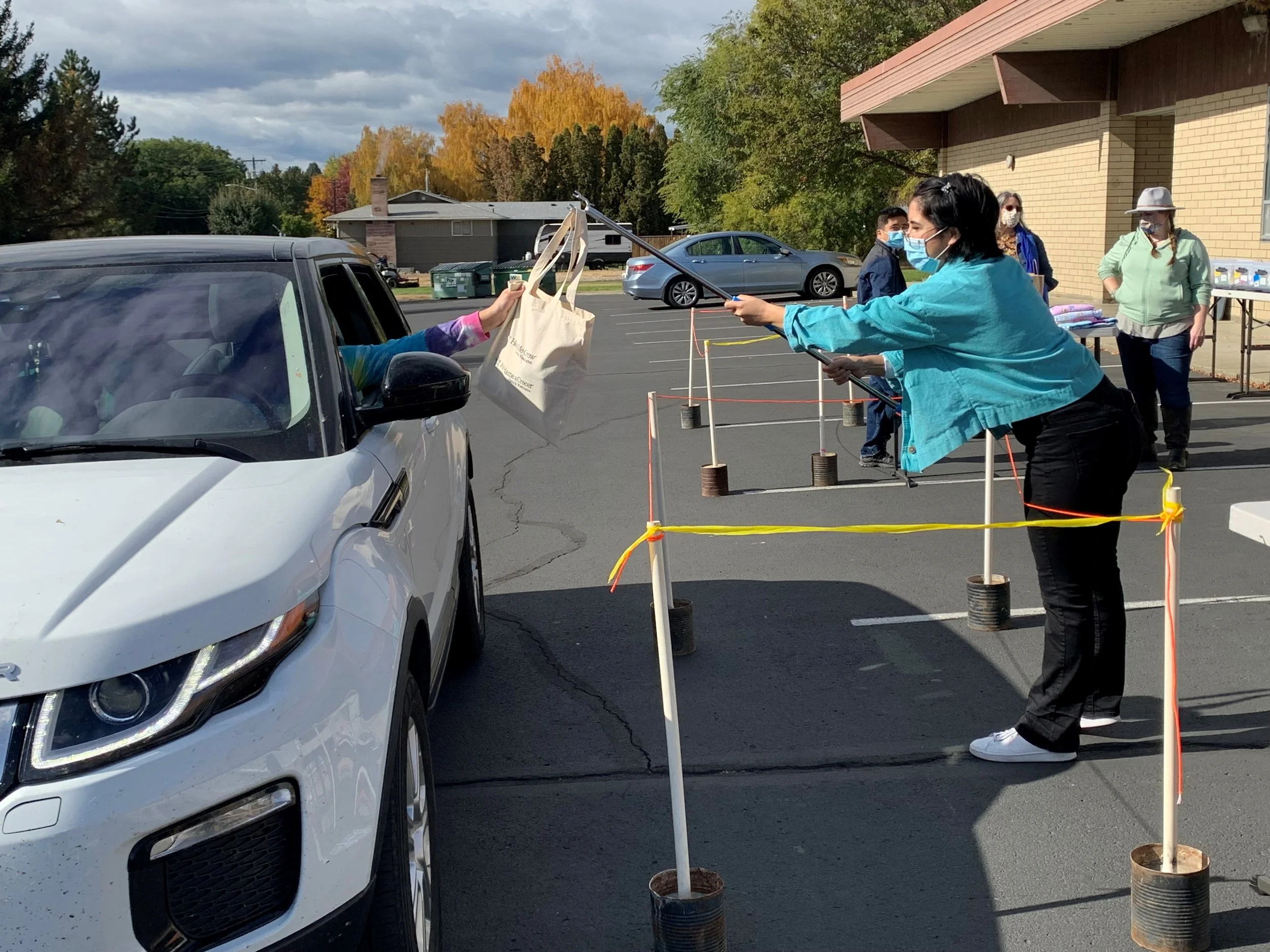Strength, Beauty, and Resilience: Investing in Children Coalition
Author: Brenna Bream
The term ‘essential’ made its way into the Investing in Children Coalition’s collective language during the COVID-19 pandemic, referring to people in roles often undervalued in society such as farmworkers, child care providers, and hospitality workers. People in these industries make up the majority of Yakima and Kittitas Counties’ workforce, explains Lindsay Boswell, Investing in Children’s Regional Lead. She goes on to say that it’s this, “infrastructure of essential workers that keeps society moving,” in their community and beyond. The Investing in Children Coalition recognizes the important role that this essential workforce plays in the early learning network of Central Washington and works to support inclusion of their perspectives.
Thirty percent of Yakima County is 18 years or younger and majority BIPOC, so there is, “tremendous opportunity for redistribution of power and resources,” Lindsay explains.
Lindsay thinks of her region as a microcosm for the rest of the country in that the younger population’s demographics differ significantly from older generations.’ Thirty percent of Yakima County is 18 years or younger and majority BIPOC, so there is, “tremendous opportunity for redistribution of power and resources,” Lindsay explains. Marina Medrano, Investing in Children’s Bilingual Coordinator, points out that the region is mostly Latino but, “they are not well represented in leadership and politics. Latinos do not yet have a lot of power.” Lindsay adds that Yakima’s legacy is troublesome because of practices that have exploited people for labor and removed them from their land, issues that aren’t fully in the past. Despite this, there is “strength, beauty, and resilience in the region,” she says.
Members of Investing in Children Coalition at the Capitol on WCFC Advocacy Day, 2020.
In response to the pandemic, public awareness of the necessity of child care has grown. Investing in Children Coalition looks forward to supporting growth of child care and early learning opportunities in their region, but also plans to make existing child care resources more sustainable. In 2021, they completed the first phase of the Childcare Partnership Project, funded by the Washington State Department of Commerce. With a goal of supporting Spanish-speaking child care providers in Yakima Valley, they hosted listening sessions and invited licensed childcare providers who are part of Early Achievers and who are mostly Spanish-speaking from Buena, Toppenish, Wapato and Zillah. Intentionality is highly valued in the Investing in Children Coalition. They centered women of color because they make up the majority of the region and, “have a long history of providing essential services like childcare,” Lindsay explained. Marina created all the communication for the event specifically in Spanish and, if needed, translated it to English. By starting with Spanish, they centered those closest to the experience in all phases of the project and created opportunities for them to voice their needs. Viewing child care providers as small business owners not only legitimizes their demands, it also empowers them to influence the ways in which the Investing in Children can effectively collaborate alongside them.
“I’ve never been so happy for an idea to fail,” Lindsay remarked, because it meant providers felt they could speak up and that the coalition could follow their lead to find more collaborative solutions.
The listening sessions focused on asking child care providers what barriers they face in their work. “They had a lot to say,” Marina recalls. While the coalition started the project with some of their own ideas, child care providers had more relevant solutions for themselves. “I’ve never been so happy for an idea to fail,” Lindsay remarked, because it meant providers felt they could speak up and that the coalition could follow their lead to find more collaborative solutions. Throughout two Zoom sessions and three in-person sessions, providers frequently said they needed basic technology. This was clear from the beginning, with providers often connecting to the Zoom sessions by phone or iPad. Investing in Children responded directly to this need by providing technology kits to each provider (32 in all) that included a laptop, laptop bag, computer mouse, printer, and a licensed copy of MS Office installed on the laptop. They’ve gotten feedback that these resources really advanced the work providers can do. In follow up, one childcare provider told Marina that she was able to successfully apply for a grant for her child care business; several others have told her that, “nobody’s ever asked for my feedback before.” The Investing in Children Coalition is currently working on Phase II of the Childcare Partnership Project focusing on providers in Granger and Mabton.
Marina hands out food during ICC’s drive through event in 2021.
In partnership with local organizations, the coalition is also in the early stages of an Early Learning Needs Assessment project. Organizations with ECEAP or HeadStart slots are required to conduct community needs assessments as part of their contractual obligations to offer those programs. However, this often means repetitive data analysis of the same community. The Coalition plans to offer a consortium of data needs that programs could pull material from instead of doing their own information gathering. Data would be updated every other year, ideally on the “off” year of a legislative session, so that is it always contemporaneous and readily available for advocacy opportunities.
Their focus on child care advocacy is intersectional—there is no part of a community untouched by the availability of child care.
The Investing in Children Coalition continues to practice dynamic and intentional ways to engage the Central WA early learning community. Their focus on child care advocacy is intersectional—there is no part of a community untouched by the availability of child care. The coalition regularly reflects on how they can improve their approach in order to put pressure on the systems that are intended to serve families. Lindsay noted, "All too often we expect families to change their behaviors to fit into the system instead of adapting the system to be helpful to families."
Follow Investing in Children’s work through padlet, a centralized and easily accessible record of shared resources curated by Marina. The coalition encourages connections to happen outside of their monthly meetings, so you can find all shared events, flyers, etc. there.


